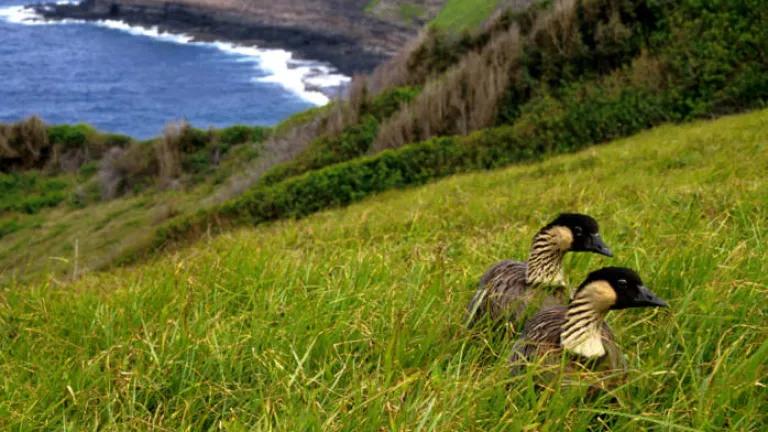Wildlife Recovery Funding Moves Forward
The Recovering America’s Wildlife Act (RAWA) is a once-in-a-generation, bipartisan opportunity for America to invest deeply in halting the biodiversity crisis.

RAWA will provide additional funding to conserve and recover threatened species such as the Nene which are endemic to the Hawaiian Islands.
The Recovering America’s Wildlife Act (RAWA) is a once-in-a-generation, bipartisan opportunity for America to invest deeply in halting the biodiversity crisis. And, today, RAWA came one step closer to becoming law when it passed out of the Senate Environment and Public Works Committee, creating the path for the full Senate to vote on this historic legislation.
Benefits of the Recovering America's Wildlife Act
RAWA provides dedicated annual funding that will transform wildlife and plant conservation and support long-term healthy habitat across the country, while also providing badly needed funding for federal wildlife conservation and recovery programs. If it becomes law, RAWA will provide $1.4 billion annually to address the backlog of species recovery needs, support voluntary conservation efforts, and advance conservation strategies developed by states, territories, and tribes.
Our planet is facing a biodiversity crisis. One million species are threatened with extinction—many within decades—unless action is intentionally taken to reduce the activities that drive biodiversity loss. As we work to address the worst effects of the interconnected climate and biodiversity crises, RAWA will make it possible for states and tribes to take a more proactive approach to protect species from becoming threatened with extinction and recover species that are already listed as threatened or endangered. RAWA will also provide the U.S. Fish and Wildlife Service with the critical resources it needs to implement its wildlife conservation and recovery programs.

RAWA is a critical step forward to protect wildlife for future generations.
Wildlife agencies have already identified more than 16,000 species in need of conservation assistance. Related, existing funding for federal wildlife recovery efforts through the Endangered Species Act have been severely insufficient and failed to meet the needs of those species that are in the most trouble. RAWA seeks to start filling the gap by allocating 15 percent of overall funding to wildlife and plants already listed as threatened or endangered and that need support now. It also prioritizes projects that serve disadvantaged communities and ensures that those states and territories with the greatest conservations challenges receive more funding.
Tribal Support for RAWA
Critically, there is strong tribal support for this legislation. Tribes have long been excluded from traditional sources of funding for wildlife management. RAWA seeks to correct that injustice and dedicates a transformative $97.5 million per year for tribes to advance biodiversity goals and manage fish and wildlife on tribal lands. As we work to address the biodiversity crisis, we must ensure that the solutions are inclusive and equitable.
"RAWA will make it possible for states and tribes to take a more proactive approach to protect species from becoming threatened with extinction and recover species that are already listed as threatened or endangered."
What's Next?
Our nation’s natural systems and wildlife are disappearing before our eyes. Last year the U.S. Fish and Wildlife Service declared 23 more species extinct. RAWA delivers the funds that our imperiled wildlife needs now. With today’s action, RAWA has cleared a key hurdle, now having successfully passed out of the relevant committees in both the House and the Senate. We urge both chambers of Congress to swiftly pass this critical bill so President Biden can sign it into law.





